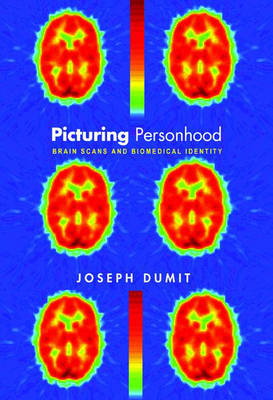
Picturing Personhood
Princeton University Press (Verlag)
978-0-691-11397-5 (ISBN)
- Titel ist leider vergriffen;
keine Neuauflage - Artikel merken
By showing us the human brain at work, PET (positron emission tomography) scans are subtly - and sometimes not so subtly - transforming how we think about our minds. "Picturing Personhood" follows this remarkable and expensive technology from the laboratory into the world and back. It examines how PET scans are created and how they are being called on to answer myriad questions with far-reaching implications: Is depression an observable brain disease? Are criminals insane? Do men and women think differently? Is rationality a function of the brain? Based on interviews, media analysis, and participant observation at research labs and conferences, Joseph Dumit analyzes how assumptions designed into and read out of the experimental process reinforce specific notions about human nature. Such assumptions can enter the process at any turn, from selecting subjects and mathematical models to deciding which images to publish and how to color them. Once they leave the laboratory, PET scans shape social debates, influence courtroom outcomes, and have positive and negative consequences for people suffering mental illness.
Dumit follows this complex story, demonstrating how brain scans, as scientific objects, contribute to our increasing social dependence on scientific authority. The first book to examine the cultural ramifications of brain-imaging technology, "Picturing Personhood" is an unprecedented study that will influence both cultural studies and the growing field of science and technology studies.
Joseph Dumit is Associate Professor of Anthropology and Science & Technology Studies at the Massachusetts Institute of Technology. He is a coeditor of "Cyborgs & Citadels" and "Cyborg Babies" and Associate Editor of the journal "Culture, Medicine & Psychiatry".
List of Illustrations ix Acknowledgments xi Chapter 1 Introduction 1 Interlude 1 Thinking about Reading 19 Chapter 2 Metaphors, Histories, and Visions of PET 22 Interlude 2 Reading Function 50 Chapter 3 Producing Brain Images of Mind 53 Interlude 3 Who Can Read Other Minds? 106 Chapter 4 Ways of Seeing Brains as Expert Images 109 Interlude 4 Reading into Images 134 Chapter 5 Traveling Images, Popularizing Brains 139 Interlude 5 Living One's Images 170 Chapter 6 Conclusion: Here Is a PET Image of a Person that Shows Depression 172 Notes 187 Bibliography 209 Index of Names 235 General Index 242
| Erscheint lt. Verlag | 4.1.2004 |
|---|---|
| Reihe/Serie | In-Formation |
| Zusatzinfo | 18 color illus. 19 halftones. 5 table. |
| Verlagsort | New Jersey |
| Sprache | englisch |
| Maße | 152 x 235 mm |
| Gewicht | 539 g |
| Themenwelt | Geisteswissenschaften ► Psychologie ► Biopsychologie / Neurowissenschaften |
| Medizinische Fachgebiete ► Radiologie / Bildgebende Verfahren ► Computertomographie | |
| Sozialwissenschaften ► Ethnologie | |
| Sozialwissenschaften ► Soziologie | |
| ISBN-10 | 0-691-11397-1 / 0691113971 |
| ISBN-13 | 978-0-691-11397-5 / 9780691113975 |
| Zustand | Neuware |
| Haben Sie eine Frage zum Produkt? |
aus dem Bereich


